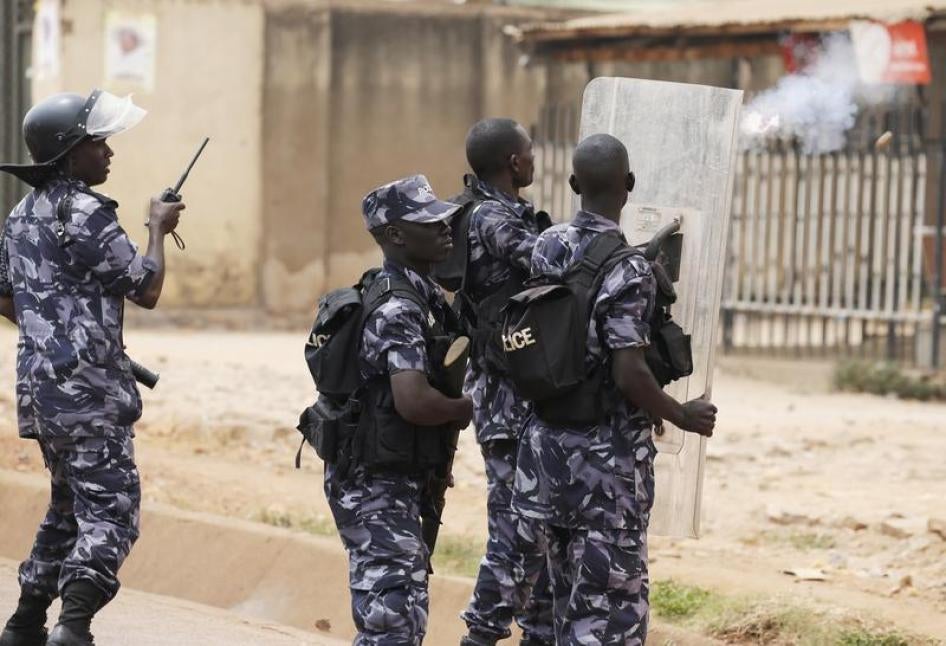On November 3, the United Nations Human Rights Council will scrutinize Uganda’s human rights record – a process known as the Universal Periodic Review (UPR). During its last review in 2011, Uganda agreed to take on a wide range of recommendations – including ensuring full respect for freedom of association and peaceful assembly, and investigating the excessive use of force and torture by security forces. It also pledged to prosecute and punish perpetrators.
In this year’s submission, the government declared it has made “tremendous progress in promoting respect for human rights,” listing its numerous human rights desks, committees, and subcommittees on human rights in different government offices.
But those offices have been largely mute on violations of free expression, assembly, and association.
Brazen police violence and repression during the run-up to the February 2016 election laid bare the problem – abuses that weren’t even slightly hindered by the proliferation of human rights desks. The media filmed police beating journalists and teargassing people gathered to hear opposition candidates. Some journalists were arrested while live on air, trying to cover opposition events. The government shut down access to social media for five days so as to further obstruct critiques of the electoral process – a process that local observers found to be not free and not fair. Also, Uganda made no concrete progress in holding police and military members accountable for using excessive force during assemblies. The killings in September 2009 and April 2011 of protesters and bystanders to protests have resulted in zero convictions. There is no evidence police have interviewed a single witness to those killings since the last UPR evaluation.
The government’s UPR report claims the police’s disciplinary proceedings and Uganda’s Human Rights Commission are addressing police abuses, but there is little evidence of that. Its low-level officers who are pulled before disciplinary proceedings and the outcomes are opaque and do little to deter abuses. Importantly, high-ranking police officers never face scrutiny for the orders they have given.
The government often disregards the Uganda Human Rights Commission. In two cases where the commission ordered government to compensate families for the killings of children at the hands of security forces during protests, but the money has never been paid.
In the UPR process, Uganda may give itself credit for criminalizing torture in 2012. Unfortunately, no officials – police or military – have ever actually faced trial for charges under that law. So, torture continues without redress.
Uganda should take concrete actions to address ongoing human rights abuses. Countries participating in the review this year shouldn’t accept the government rhetoric on progress while key accountability bodies remain toothless or ignored. They should urge Uganda to do more to change the entrenched climate of impunity that is leaving victims with nowhere to turn.







